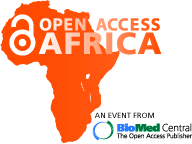Rachel Astall, Corporate and Events Officer
Computer Aid International, explains the importance of IT development in the developing world.
Millions of people have never even seen a
computer, let alone used one. The digital divide that exists between these
people and those of us who sit down with the world (at the World Wide Web!) at our
fingertips on a daily basis exacerbates inequalities by promoting uneven
development. IT skills are as vital today as being able to read and write- and without
access to IT young people grow up without the skills for employment.
Computer Aid International is a UK
registered charity which aims to bridge this divide and reduce poverty through
practical ICT solutions. We provide high quality, professionally refurbished
computers donated by people and companies across the UK for reuse in not for
profit organisations in developing countries. Since 1998 we have provided
nearly 200,000 computers, monitors and laptops to organisations in over a
hundred countries working in education, health and agriculture- this equates to
around a billion hours of ICT access. We
are the world’s largest and most experienced ICT for development provider.
We have seen students eagerly yet
tentatively approach a computer for the first time and quickly develop new
skills which allow them to discover knowledge whilst improving their
employability and higher education prospects. Access to technology and the
internet can also enhance traditional teaching. For example research and online
study through platforms such as Moodle give access to information previously
locked away and ICT technology can transform education from teacher-centred
lecture-based instruction to student centred, interactive learning
environments.
Kenyatta University, for example, has
utilised a combination of low cost IT equipment provided by Computer Aid and an
online learning environment to improve distance learning across Kenya. For
students who have family and work commitments beyond their studies this means
work commitments beyond their studies this means
the flexibility to study when and where suits them. For rural communities, this
means that the nurses, doctors and teachers who are crucial to public service
delivery, social cohesion and development don’t have to leave their communities
to continue their education.
But what of those students who live in
rural areas without access to mains electricity needed to run a computer? These
communities are often cut off from access to information, good education and
adequate healthcare by their remote location. Technology can help to overcome
these problems.
Computer Aid has developed an innovative
solution called the ZubaBox- a solar powered internet café built within a 20ft
shipping container, which contains 11 flat screen monitors running off a single
Pentium PC. The ZubaBox can be deployed
anywhere in the world- it needs only the power of the sun and internet access
through cellular data connection, WiFi or VSAT. Three ZubaBoxes have already
been deployed and are being used by students, teachers, doctors, nurses,
farmers and entrepreneurs to access information and develop skills previously
unavailable to them.
At Computer Aid we believe that tackling
the barriers to ICT access is critical to the health, education and development
prospects of millions of people. Providing affordable PCs and open access
technologies as well as innovations such as the ZubaBox are among the first
steps towards closing the digital divide. To this end we are proud to promote
our close working ties with BioMed Central through Open Access Africa 2011,
KNUST, Ghana where Gladys Muhunyo, our Director of Africa programmes,
will present on the work we do and the importance of access to ICT and the
benefits it can offer.
Comments